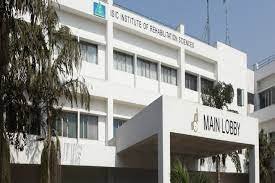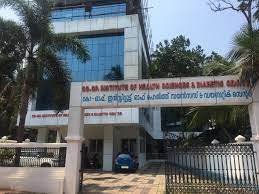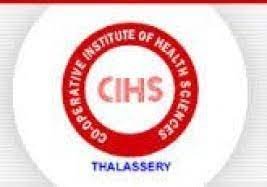MOT in Musculoskeletal offers diverse careers: orthopedic clinics, sports medicine, research, academia, private practice, and more.
Career & Job Opportunities: MOT in Musculoskeletal Course
Pursuing a Master's in Musculoskeletal Orthopedic Therapy (MOT) opens up a wealth of career opportunities for healthcare professionals with a passion for musculoskeletal care and orthopedic therapy. Graduates of MOT programs are equipped with specialized knowledge and skills, making them highly sought after in various healthcare settings. In this article, we will explore the diverse career and job opportunities available to MOT graduates.
1. Orthopedic Clinics and Hospitals:
- Orthopedic Therapists: MOT graduates can work in orthopedic clinics and hospitals, specializing in the musculoskeletal assessment, rehabilitation, and non-surgical interventions for patients with orthopedic conditions. They collaborate with orthopedic surgeons and other healthcare professionals to provide comprehensive care.
2. Sports Medicine Centers:
- Sports Rehabilitation Specialists: In sports medicine centers, MOT professionals work with athletes and active individuals. They help athletes recover from sports-related injuries, design conditioning programs, and optimize performance while focusing on musculoskeletal health.
3. Rehabilitation Facilities:
- Rehabilitation Therapists: Rehabilitation centers offer opportunities for MOT graduates to work with patients recovering from surgeries, accidents, or injuries. They create tailored treatment plans to improve mobility, reduce pain, and enhance the quality of life.
4. Research and Academia:
- Researchers: MOT graduates can pursue careers in research institutions, where they conduct studies on musculoskeletal conditions, treatment approaches, and therapeutic interventions. They contribute to advancements in orthopedic therapy and evidence-based practice.
- Academic Instructors: Many MOT professionals transition to academia, teaching the next generation of healthcare providers. They educate students on musculoskeletal assessment, treatment modalities, and best practices in orthopedic therapy.
5. Private Practice:
- Private Practitioners: MOT specialists can establish their private practices, offering musculoskeletal and orthopedic therapy services to a diverse patient population. This allows them to have control over their practice areas and treatment approaches.
6. Public Health Initiatives:
- Musculoskeletal Health Promoters: MOT professionals can contribute to public health initiatives by raising awareness of musculoskeletal health, promoting injury prevention, and developing community-based programs to enhance musculoskeletal well-being.
7. Consulting and Advisory Roles:
- Orthopedic Consultants: Many organizations and healthcare facilities seek the expertise of MOT specialists for consulting and advisory roles. They provide guidance on orthopedic care practices, program development, and quality improvement.
8. Global Health Opportunities:
- Global Health Specialists: MOT graduates passionate about global health can work in underserved or international settings. They address musculoskeletal health disparities, provide training, and support healthcare initiatives in diverse regions worldwide.
9. Orthopedic Surgery Teams:
- Orthopedic Assistants: MOT professionals often collaborate with orthopedic surgeons as part of surgical teams. They assist in patient evaluations, preoperative preparations, and postoperative care to ensure optimal outcomes.
10. Assistive Technology and Orthotics:
Orthotic Specialists: MOT graduates may specialize in orthotics, designing and fitting custom orthotic devices to support patients with musculoskeletal conditions. They collaborate with orthopedic physicians to improve mobility and comfort.
11. Non-Profit Organizations:
Musculoskeletal Health Advocates: Non-profit organizations, including NGOs and healthcare charities, hire MOT professionals to develop and implement health programs, particularly in underserved communities. They address orthopedic health disparities and improve access to care.
12. Industry and Corporate Settings:
Product Development: Some MOT specialists work in product development and testing for orthopedic equipment, devices, and technologies. They contribute to the design and improvement of products that enhance musculoskeletal health.
13. Elder Care Facilities:
Geriatric Orthopedic Therapists: MOT professionals may choose to specialize in geriatric care. They work in elder care facilities, focusing on musculoskeletal health management for senior citizens, including fall prevention and pain management.
14. Telehealth and Remote Care:
Telehealth Orthopedic Therapists: With the increasing popularity of telehealth, MOT graduates can provide virtual musculoskeletal assessments, exercise prescriptions, and remote guidance to patients in need of orthopedic care.
15. Insurance and Healthcare Administration:
Orthopedic Health Analysts: Some MOT professionals transition to roles in healthcare administration and insurance. They assess and analyze musculoskeletal healthcare data, helping organizations make informed decisions and improve patient outcomes.
16. Integrative Medicine Centers:
Complementary Therapy Specialists: MOT specialists may collaborate with integrative medicine centers, offering complementary therapies such as acupuncture, chiropractic care, and massage therapy to promote musculoskeletal health.
17. Continuing Education and Training:
Orthopedic Educators: Experienced MOT professionals can provide continuing education and training to other healthcare providers, keeping them updated on the latest advancements in musculoskeletal care.
18. Personal Trainers and Fitness Centers:
Fitness and Rehabilitation Coaches: MOT graduates can work as fitness trainers or rehabilitation coaches in fitness centers, guiding individuals in injury prevention, exercise programs, and post-injury rehabilitation.
 2 Years
2 Years
 Post Graduate
Post Graduate
 Medical
Medical
 Full Time
Full Time





 back
back

